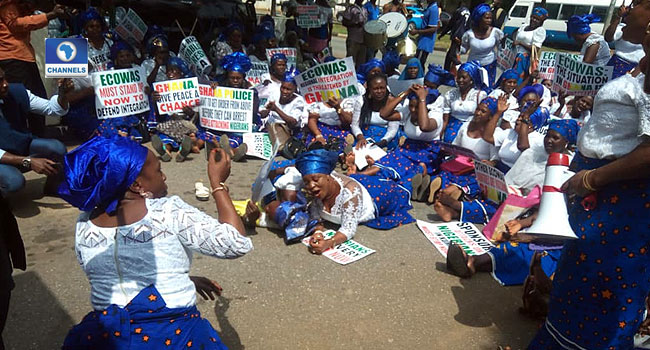The Minister of Interior, Ogbeni Rauf Aregbesola, has called on Nigerian traders who are facing tough times in Ghana not to leave the country.
He urged them to be patient with the Federal Government which he said was engaging with the Ghanaian authorities and other relevant stakeholders with a view to addressing their challenges.
The minister gave the advice on Tuesday in his office in Abuja when he received a delegation of the Nigerian Traders Association in Ghana, an Affiliate of the Nigerian Traders Association, led by its National President, Dr Ken Ukaoha.
Aregbesola assured that regime of the President, Major General Muhammadu Buhari (retd.), would continue to engage the Ghanaian government to resolve the challenges faced by Nigerians in that country.
This was contained in a statement by the interior ministry spokesman, Mohammed Manga titled, ‘Aregbesola advises Nigerian traders not to leave Ghana.’
The minister said the FG “is pained by the condition under which the traders have been made to operate in recent times,” and assured that the government would not abandon them.
“Your pains cannot endure, we will not abandon you; no stone is being left unturned to remove the pains you are passing through in Ghana,” Aregbesola assured.
He stressed that the government was not sleeping on the matter but “doing everything possible to make life better for its citizens in Ghana and other countries of the world.”
Ukaoha expressed what he referred to as the agony, humiliation and torture of Nigerian traders in Ghana, emanating from the Ghanaian government’s decision to raise the capital base of any foreign trader doing business in the country to $1million, and the subsequent locking up of many Nigerian traders’ shops since 2019.
He added that despite various interventions by representatives of the FG, nothing significant had been done by the Ghanaian government to reverse the trend.
“If we react proportionately to the way we have been treated in Ghana, it might lead to a serious crisis,” he noted.


